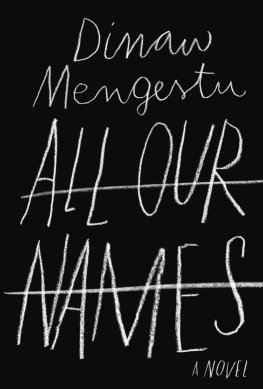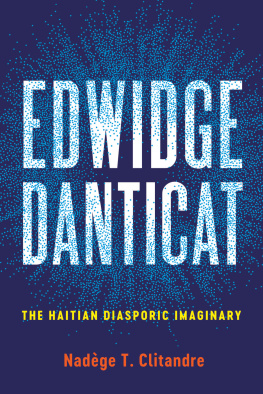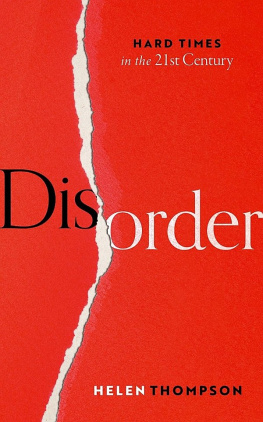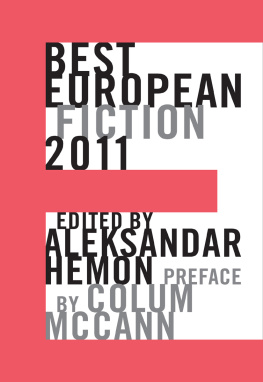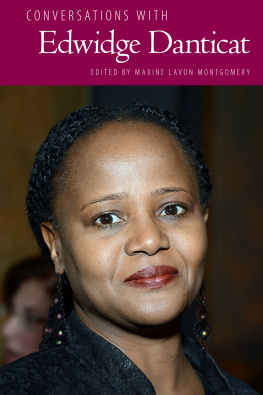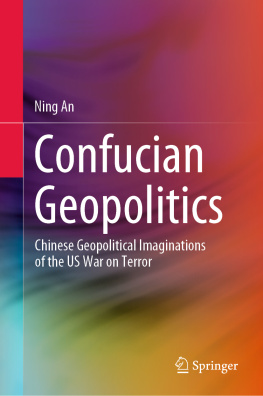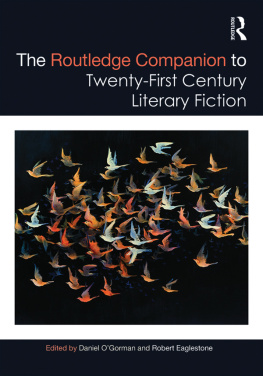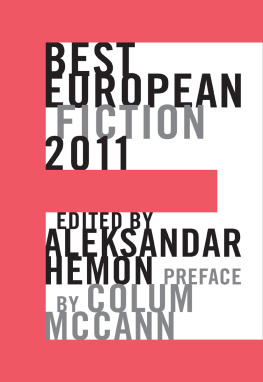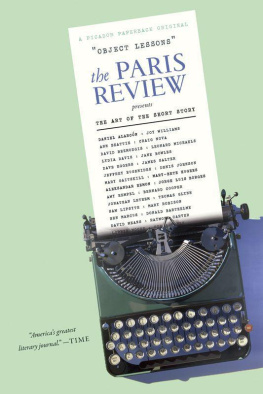TOWARD THE GEOPOLITICAL NOVEL
Literature Now
Literature Now
Matthew Hart, David James, and Rebecca L. Walkowitz, Series Editors
Literature Now offers a distinct vision of late-twentieth- and early-twenty-first-century literary culture. Addressing contemporary literature and the ways we understand its meaning, the series includes books that are comparative and transnational in scope as well as those that focus on national and regional literary cultures.
TOWARD THE GEOPOLITICAL NOVEL
U. S. Fiction in the Twenty-First Century
CAREN IRR
COLUMBIA UNIVERSITY PRESS
New York

COLUMBIA UNIVERSITY PRESS
Publishers Since 1893
NEW YORK CHICHESTER, WEST SUSSEX
cup.columbia.edu
Copyright 2014 Columbia University Press
All rights reserved
E-ISBN 978-0-231-53631-8
Library of Congress Cataloging-in-Publication Data
Irr, Caren.
Toward the geopolitical novel : U.S. fiction in the twenty-first century / Caren Irr.
pages cm. (Literature Now)
Includes bibliographical references and index.
ISBN 978-0-231-16440-5 (cloth : acid-free paper)
ISBN 978-0-231-16441-2 (pbk. : acid-free paper)
ISBN 978-0-231-53631-8 (e-book)
1. Political fiction, AmericanHistory and criticism. 2. American fiction21st centuryHistory and criticism. 3. Politics and literatureUnited States. 4. Globalization in literature. I. Title.
PS374.P6177 2013
813.099'358dc23
2013027558
A Columbia University Press E-book.
CUP would be pleased to hear about your reading experience with this e-book at .
COVER IMAGE : Noel McLaughlin / Gallery Stock
COVER DESIGN : Chang Jae Lee
References to Web sites (URLs) were accurate at the time of writing. Neither the author nor Columbia University Press is responsible for URLs that may have expired or changed since the manuscript was prepared.
CONTENTS
THIS BOOK AROSE from conversations that took place during my year at Masaryk University in the Czech Republic. For that invaluable opportunity, I have the generosity of the Fulbright Commission as well as my affable hosts in the Department of English and American Studies to thank. Students in several contemporary literature courses at Brandeis gamely continued the conversationespecially those in my fall 2011 seminar on the literature of revolution. Laura Hills research eased early stages of my writing process.
For their rigorous reading of the bulk of the manuscript, I am very grateful to Aliyyah Abdur-Rahman, Ulka Anjaria, Dave Sherman, Faith Smith, and Lisa Swanstrom. Michael T. Gilmore and Paul Morrison also provided pep talks at just the right moments. The scrupulous commentary offered by the anonymous readers for Columbia University Press was invaluable during revision, and special gratitude goes to Philip Leventhal and the editors of the Literature Now series for giving this book such a good home. Irene Pavitts copyediting was also amazingly thorough and helpful.
An early version of issue, Twentieth Century Literature 57, nos. 34 (2011): 516546. Gordon Hutner kindly published an earlier version of chapter 6 as Toward the World Novel: Genre Shifts in 21st-Century Expatriate Fiction, American Literary History 23, no. 3 (2011): 660679. Finally, I dedicate this book to my daughter Lonso, whose irrepressible joy and energy brighten every day.
ON THE AUSPICIOUS date of January 1, 1984, in the New York Times Book Review, Mary McCarthy described the effect that the first volume of John Dos Passoss U.S.A. trilogy (19301936) had on her more than fifty years earlier: I fell madly in love with that book.... I responded.... I went to the library and looked up every line that Dos Passos had published that was in the card catalogue. I read them all. Immersing herself in the causes, people, and publications mentioned in Dos Passoss writing launched McCarthys own remarkable literary career. Like a Japanese paper flower dropped into a glass of water, she recalls, it all unfolded, magically, from Dos Passos.
These recollections open McCarthy case in defense of the political novel. Far from our home product [being] primarily domestic, unconcerned with public affairs, she argues, American fiction has had a long, healthy tradition of engaging with issues of the day. McCarthy testifies to the effects of this writing before presenting her own common-sense definition of the genre. Making persuasive arguments, describing political figures, and exploring problems are the three tasks of the political novel, McCarthy asserts. Their frequent adoption ensures that the political novel in this country is certainly no fringe phenomenon. Almost any novel about anti-Semitism, race, or women counts as political for McCarthy, as do pacifist-leaning books on war and veterans. She points to tendentious novels by John Steinbeck, Richard Wright, and Robert Penn Warren as well as more recent offerings by Norman Mailer, Kurt Vonnegut, and Joseph Heller to support her thesis. These powerful, even life-changing works ground her conclusion that the political novel was alive and well in 1984.
McCarthys confidence about the vitality of the political novel remains entirely justified in the early twenty-first century. Since 2000, the political novel has experienced a marked resurgence in U.S. fiction. Its major themes, figures, and narratives have been reinvigorated in hundreds of works that address the interconnected global environment of the new millennium. The more than 125 novels examined in this book participate, in one manner or another, in a concerted movement toward a new literary form: the geopolitical novel.
Observers across the literary field have already noticed signs of the return of the political novel. In Reality Hunger, creative writing professor David Shields argues that contemporary fiction is greatly enlivened by intentional efforts to make other people interested, empathetic, questioning, or even antipathetic to what theyre seeing.
The whiff of distaste expressed by White and some others for the new fiction relates to their sense of how far (or not) it has moved from its origins in the nationally grounded political novel. White suggests that much of the new fiction reproduces 1960s-era political clichs and adopts a nave relationship to neocolonial American foreign policy. Bruce Robbins agrees, chastising contemporary novelists for the brevity of their forays into the international scene and their reduction of non-American history to a litany of atrocities.
A broad survey of contemporary fiction reveals, however, that these fears are largely unfounded. Reading widely and synthetically demonstrates that the new geopolitical fiction resists reproducing the least appealing features of American fiction of recent decades. Instead, the twenty-first-century political novel actively reorganizes existing literary forms. More than a hundred writers have twisted and stretched conventional versions of the political novel, testing its durability as they encourage new mutations. These energetic efforts to create new genres are the sign of a culture in contest. After all, neither American culture nor the literary genres that codify cultural trends is static. To the contrary: fiction of the past decade actively seeks creative ways to move beyond existing national forms, and does so because it participates in an active social process in which new political positions and attitudes are emerging.
Although it may be premature to describe the positions expressed in twenty-first-century fiction as full-blown ideologies, the consistent matrix of possibilities evident in this writing does suggest a worldview or a proto-political orientation. Less often than in McCarthys day is recent work by astute internationally minded authors concerned primarily with political ideas or persuasion; that version of the genre tends to rely on a high level of extra-literary political organizationsuch as party platforms and journals of opinion. In recent decades, literary authors have ceded much of this terrain to political professionals. McCarthys second variety of political novelthe literary vision of a public figureis somewhat more common. But most often, the twenty-first-century geopolitical novel presents detailed descriptions of ordinary, dedicated people wrestling with the problems of the new millennium. In these problem novels, common tropes repeatedly appear, and interpreting these scenes, figures, and conflicts reveals some key features of contemporary political experience.
Next page

